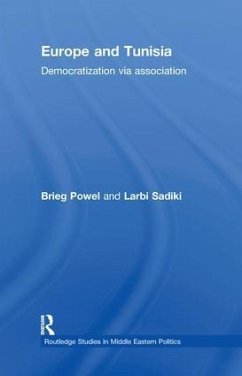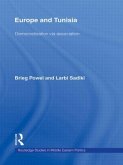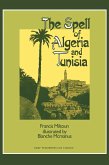This book is concerned with EU democracy promotion inside Tunisia, the first Arab signatory of an Association Agreement with the EU. Focusing on the content, context, mechanisms, and outcomes of democratization via association, the authors examine whether Tunisia's specific mode of democratization works in tandem with EU democracy promotion objectives, and the extent to which both adapt association in a way that neither sabotages EU democracy promotion nor undermines Tunisia's specificity. Drawing on Arabic, English and French sources, the book deploys a variety of methods and disciplinary approaches - discourse analysis, interviews, democratization theory, foreign policy analysis, security studies, political history, nationalism and identity - and takes an interpretivist perspective, conceiving of political processes as fluid and tentative. The first comprehensive study of the effects of the Union's Mediterranean democracy promotion strategy on a single recipient state, this book will be relevant to students of Middle East politics, European foreign policy, Euro-Mediterranean studies, democratization theory, and Euro-Arab relations, this book will also be of great interest to researchers, academics and policy-makers.
Hinweis: Dieser Artikel kann nur an eine deutsche Lieferadresse ausgeliefert werden.
Hinweis: Dieser Artikel kann nur an eine deutsche Lieferadresse ausgeliefert werden.








